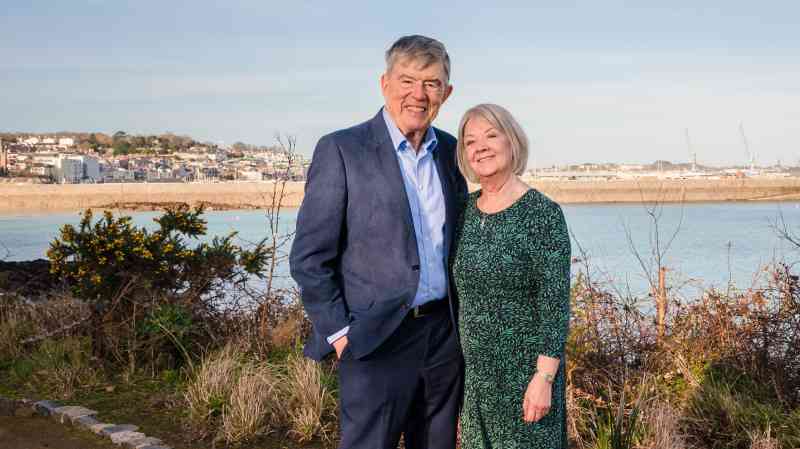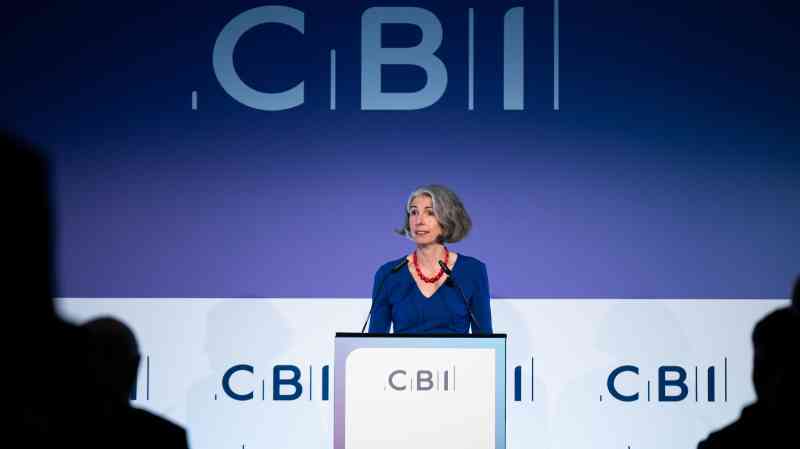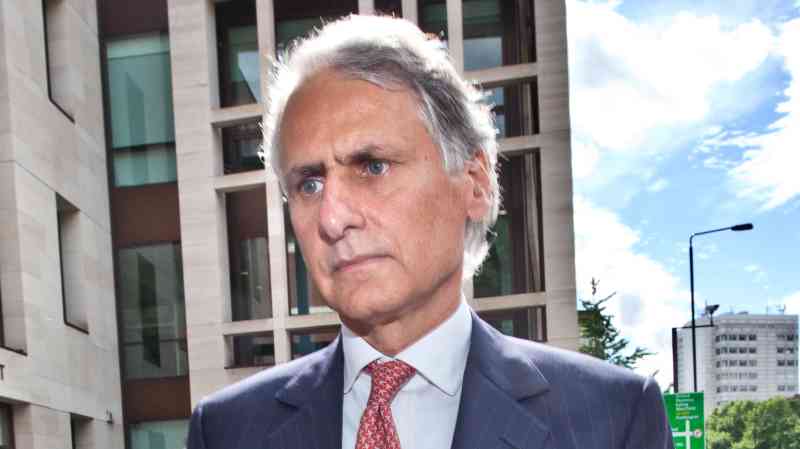Couple who built £4bn Specsavers empire — and still run it in their 80s
Doug and Dame Mary Perkins, who founded Specsavers 40 years ago and still own the company, could be forgiven for resting on their laurels.
But Doug, 81, and Mary, 80, still put in a full shift at Specsavers’ Guernsey headquarters — and their commitment to the business, and the enjoyment they get from running it, is clear to see. “Cut us and our blood is green,” said Mary, referring to the colour of the company’s logo.
Doug remains co-chief executive and chairman and his focus is on new business development and innovation, including Specsavers’ partnership with Newmedica, a chain of ophthalmology clinics that carry out treatments such as cataract surgery for the NHS and private patients.
Mary has always been “the champion of the customers and the people person”, he said. She sends handwritten birthday cards and new baby cards to the company’s thousands of staff, and also visits stores incognito to talk to customers about their experience. In Guernsey, she is recognised, but on the British mainland “I’ll ask the person next to me on the train where they got their glasses”, she said. “It’s a great way to do research.”
The chain of opticians, which opened its 1,000th shop this year in Harpenden, Hertfordshire, operates in 11 countries and had revenues of £4 billion in the year to February — up 10.3 per cent on the previous 12 months. The Sunday Times Rich List estimates the couple’s personal fortune to be £1.59 billion.
Beyond their financial success, they remain happily married after running their businesses together since the 1960s, and have three children — their son John became co-chief executive of Specsavers in 2015 — and seven grandchildren, five of whom are working in the business, too.
The Perkins met in the 1960s while studying optometry at Cardiff University, where Mary was one of five women on the course. After graduating, they moved to Bristol, where Mary’s father had an optician’s shop, and then in 1967 they set up an optical business of their own called Bebbington (Mary’s maiden name) and Perkins, which they grew to a chain of 23 shops in the city.
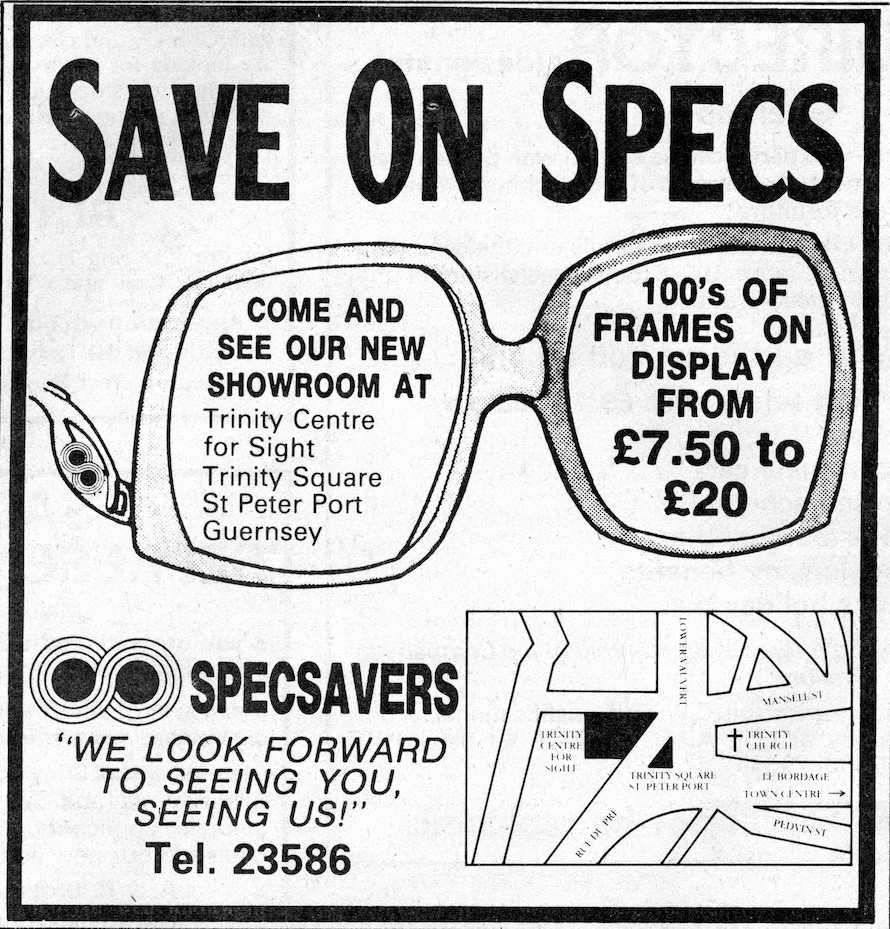
Doug said it “was an education” running the company as it expanded, because the economy was buffeted by high inflation, recession and industrial action as the calendar ticked forward to the early 1970s. The Perkins had generators in their shops for when the electricity was shut off during the three-day week in the winter of 1973-74, and their priority was always to “keep costs right down”, Doug added. Opticians were also still highly regulated at the time and the price of any non-NHS glasses was very high.
“We both came from everyday families and an environment where value for money was very much in focus,” he said. “We had also both worked from the age of about 13 and knew the value of good customer service.”
They sold Bebbington and Perkins in 1980 for about £2 million because they knew they couldn’t grow any further without expanding to other towns and cities. The business model they had, where they owned and ran everything centrally, didn’t support that, said Doug.
Opticians were deregulated by the Thatcher government in the early 1980s, meaning they could advertise and compete on price for the first time. Doug and Mary saw an opportunity and went back into business with Specsavers in 1984. They had moved to Guernsey by that time and initially ran the new company from their home, using the family’s ping-pong table as a desk.
In addition to the deregulation of the sector, the Perkins made two big changes to the way in which they had run their previous business. First, each Specsavers store operates as a joint venture where a “partner”, typically an optician, buys shares in the shop, with the remaining stock held by Specsavers. The partner is paid a monthly salary and shares the profit each year with the company.
Second, while central services including staff training and marketing are carried out by Specsavers (the famous “Should have gone to Specsavers” tagline was created by the in-house team in 2003), partners make decisions about what equipment they want to buy and what services each store will offer, such as hearing tests as well as eye tests.
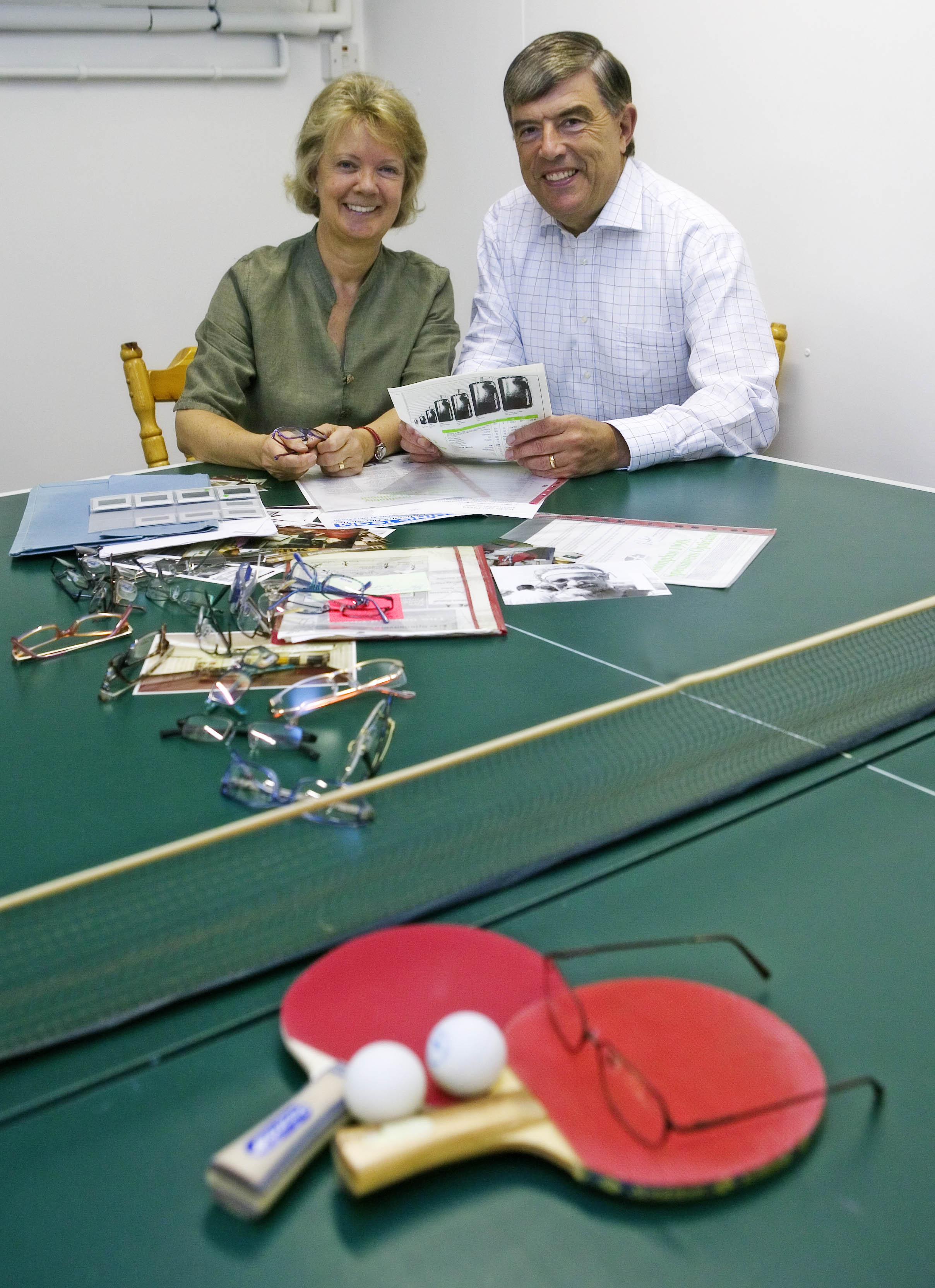
“We wanted to have partnerships because we knew the limitations of being the owner and having to keep asking employees to do things the way you want them to be done,” said Doug. “Partners substantially own the business and operate it, and as a result, their motivation is at a completely different level.”
The couple also knew they had to grow fast, but profitably, to show potential future partners that the business model worked.
“We needed to expand into about ten cities as quickly as possible,” Doug recalled. After giving themselves two years to prove the company was financially sustainable, the next step was to have a presence across Britain. With the economies of scale achieved by opening more shops, they started to make two-for-one offers on glasses, and were also able to sell contact lenses at much lower prices than they had before.
Boots was their main rival at this time, said Doug, but there was enough demand for both to grow, both because competition on prices meant more people had their eyes tested and changed their glasses regularly, and because the population was ageing.
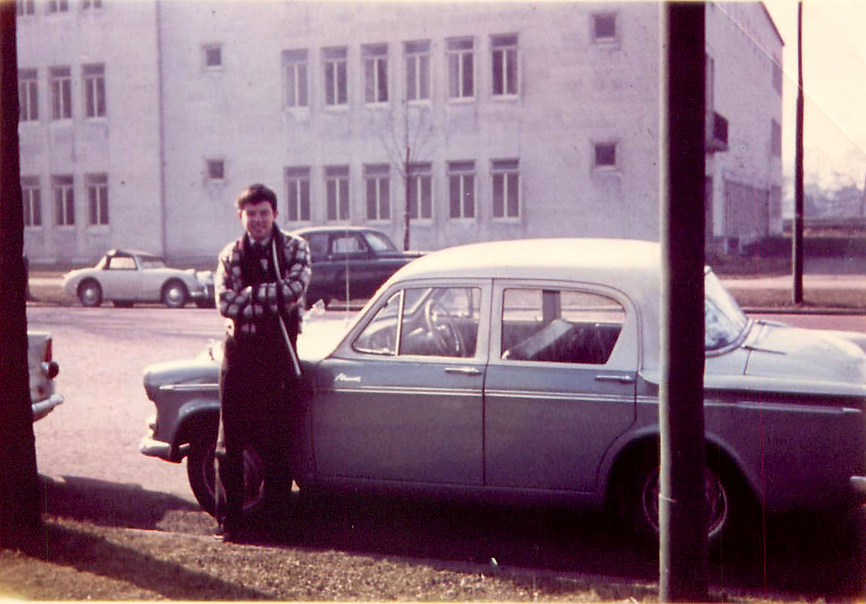
In 1990, Specsavers opened its first store outside the UK, in Ireland, followed by the Netherlands in 1997. The company now has stores in Sweden, Norway, Denmark, Finland, Spain, Canada, Australia and New Zealand.
Today, Australia is Specsavers’ biggest market after the UK, with revenues of £875 million last year, but getting it off the ground required the biggest personal sacrifice. Doug went to Australia to be the managing director for five years after they first opened there in 2008, initially because “nobody else wanted to go” — but also because he wanted to prove he could make the model work in a country where no one had ever heard of him, or Specsavers.
Mary stayed in Guernsey and travelled to see him when she could, admitting it wasn’t her favourite period of the business’s growth. However, both Doug and Mary share a horror of resting on their laurels. “Being the dominant player who sits back and stops thinking about how to move forward — that is our nightmare,” said Doug.
Mary recalled that Allan Leighton, the former chief executive of Asda, once told them: “ ‘If you’re number one, then act as if you’re number two.’ I think that is such good advice for any company. You have to keep thinking about how to differentiate your business.”
The Perkins have never taken outside investment, other than when partners buy shares in a Specsavers shop, and in 2023 they put the company into a family trust. This stipulates that the founders do not want it to be sold to a private equity firm after their death.
“A lot of our attention now goes into planning for the future,” said Doug. As well as ensuring they have the right family and non-family directors, both Doug and Mary are involved in staff training and development to ensure they retain good employees.
“It’s a people business,” he added. “If we’re not thinking about colleagues all the time, then we have not got any kind of legacy.”
High five
My hero … Doug: Richard Branson, who had his first Virgin Records store in Bristol next to our shop in 1975. His belief in “the brand”, and the use of joint ventures, was inspirational. And Jim Collins, who wrote the book Good to Great, demonstrating the qualities of both great selection of people and best practice in great companies. Mary: my father, and the late Queen.
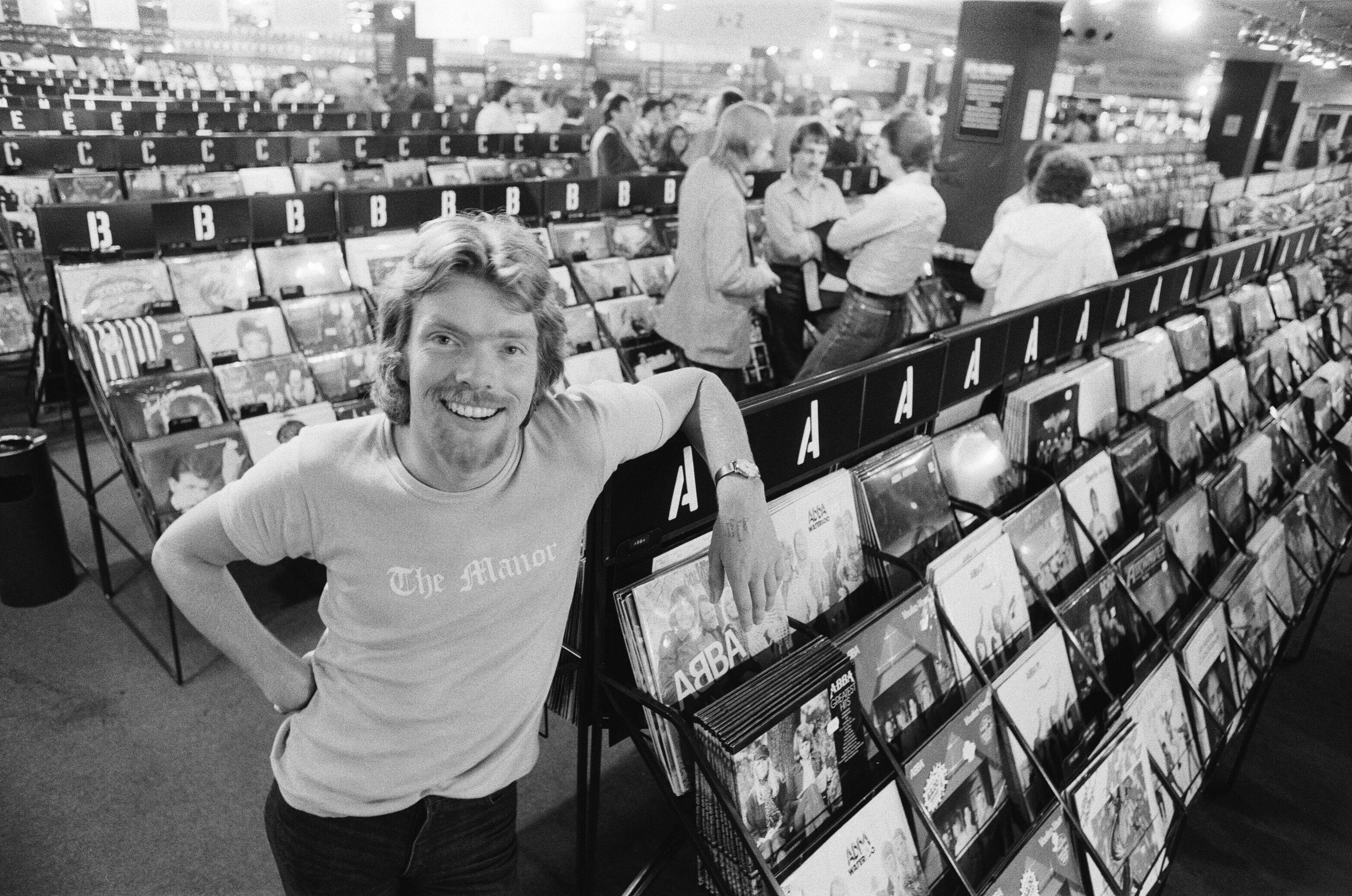
My best decision … Doug: going to Australia. I have a great admiration for the country, and I learnt so many skills. All the people we brought over from the UK had the best experience, too. It was an adventure. Mary: starting my career again when we set up Specsavers. After we sold the first business, I had a bit of a career break because we had three children. But deciding to come back in was the best decision I’ve made.
My worst decision … Doug and Mary: in the early 1990s, we were approached to open stores in South Africa, just as the country was coming out of apartheid. We spent almost two years trying to make it work but we couldn’t. The lesson was to always do your own research; we had made the decision based on someone else presenting their picture of the country to us.
Funniest moment … Doug: as the business began to grow in Australia, the incumbent opticians started to say: “Who do they think they are, coming over to show us how to do our jobs?” I remarked to a newspaper that maybe they hadn’t been keeping up with the pace of change, and I mentioned the analogy of slowly boiling a frog [meaning even gradual change can have dramatic results over time]. Inevitably, the headline on that article said I’d called all our competitors boiled frogs, and that didn’t improve relations any.
Best business tip … Doug: keep widening your horizons and keep updating your professional and business skills. Coming out of university is just the start. Mary: for entrepreneurs with children, my advice would be not to try and keep them totally separate. Running your own business is not a nine-to-five job, it takes a lot of your time. Sometimes, your children will have to come with you and sometimes they can help, whether it’s to make a delivery or stuffing envelopes. It also gives them the chance to see what you’re doing, and they understand why you need to be away sometimes.
